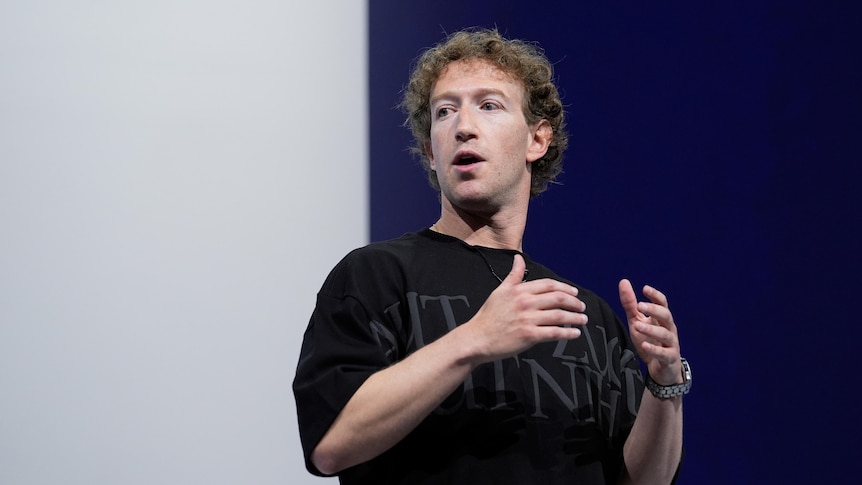Meta Platforms founder Mark Zuckerberg, along with current and former directors and officers of the company, has agreed to settle a shareholder lawsuit seeking $8 billion in damages for repeated violations of Facebook users’ privacy.
The surprise agreement was announced in Delaware’s Court of Chancery on Thursday, just as the trial was about to enter its second day.
The lawsuit, which accused Zuckerberg and others of failing to prevent or properly address privacy breaches that led to billions in regulatory fines, was abruptly halted when Delaware Judge Kathaleen McCormick was informed of the settlement. Details of the agreement were not disclosed in court, and the defence team offered no immediate comment. Judge McCormick congratulated the parties and adjourned proceedings.
According to Sam Closic, a lawyer representing the shareholders, the agreement had come together rapidly. The trial was originally scheduled to run through the end of the following week, with Zuckerberg expected to testify on Monday and former Chief Operating Officer Sheryl Sandberg on Wednesday.
The plaintiffs—Meta investors—had brought the case against 11 defendants, including Zuckerberg, Sandberg, Meta board member Marc Andreessen, and other former officials such as Jeffrey Zients, Peter Thiel, and Reed Hastings. They sought to hold the group personally responsible for the financial fallout of Facebook’s long-standing privacy failures, including the record $5 billion fine levied by the U.S. Federal Trade Commission (FTC) in 2019 for violating a 2012 consent order on user data protection.
The lawsuit claimed that the defendants knowingly permitted Facebook to operate as what the plaintiffs described as an “illegal data harvesting operation,” prioritising profit over user privacy. They alleged the board failed in its legal duty to oversee the company’s compliance with privacy regulations—a breach known under Delaware law as a “Caremark” claim. These types of claims are considered notoriously difficult to win.
Although Facebook, now Meta, was not a named defendant, the suit was one of the most high-profile legal challenges the company’s leadership had faced in relation to the Cambridge Analytica scandal, which revealed in 2018 that a political consulting firm improperly accessed data from tens of millions of Facebook users. The scandal prompted global backlash and triggered regulatory investigations, including the FTC’s record fine.
The trial was set to be the first time Caremark claims were fully litigated, raising the stakes for both the plaintiffs and defendants. However, by settling, the defendants—including Zuckerberg—avoided public testimony and potential cross-examination about the company’s inner workings and privacy decisions.
Notably, Sandberg was sanctioned earlier in the litigation for deleting potentially sensitive emails, which would have undermined her ability to defend herself effectively had the trial proceeded. An expert witness for the plaintiffs testified on Wednesday about “gaps and weaknesses” in Facebook’s privacy controls but stopped short of confirming any violations of the FTC’s 2012 agreement.
During the same day, former board member Jeffrey Zients testified that the board did not pay the FTC fine to shield Zuckerberg from legal exposure, contradicting a central allegation of the lawsuit. Notes presented by the defence indicated that Zients had urged the company to prioritise user privacy—undermining the plaintiffs’ claim that board members were negligent.
The settlement marks the second time Zuckerberg has sidestepped a major courtroom appearance. In 2017, he avoided testifying in another case after Facebook dropped plans to create a new class of stock that would have allowed him to maintain control while selling his shares.
While the settlement avoids a potentially damaging trial for Meta’s leadership, some privacy advocates expressed disappointment that it ended without greater transparency or accountability. Jason Kint, CEO of Digital Content Next, called it a missed opportunity.
“Facebook has successfully remade the ‘Cambridge Analytica’ scandal to be about a few bad actors rather than an unravelling of its entire business model of surveillance capitalism,” Kint said. “That reckoning is now left unresolved.”
Meta declined to comment on the settlement but has maintained publicly that it has invested billions of dollars into improving privacy protections since 2019. A lawyer for the defendants also declined to comment.

